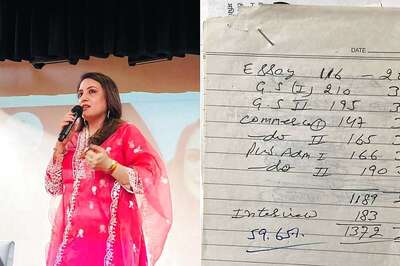
views
New Delhi: Social networking giant Facebook said it has paid over USD 1 million in the past two years to security researchers who report bugs on its website, with India second among recipients by country.
India, which has over 78 million Facebook users, is also second on the list of countries with the fastest-growing number of recipients of its Bug Bounty programme.
A bug is an error or defect in software or hardware that causes a programme to malfunction. It often occurs due to conflicts in software when applications try to run in tandem.
While bugs can cause software to crash or produce unexpected results, certain defects can be used to gain unauthorised access to systems.
Facebook said it started the Bug Bounty programme a little more than two years ago to reward security researchers who report issues and to encourage people to help keep the site safe and secure.
"The programme has been even more successful than we'd anticipated," Facebook said in a statement on its website. "We've paid out more than USD 1 million in bounties and have collaborated with researchers from all around the world to stamp out bugs in our products and in our infrastructure."
The social networking major said 329 people have received rewards, including professional researchers, students and part-timers. The youngest recipient was 13 years old.
"The countries with the most bounty recipients are, in order, the US, India, UK, Turkey, and Germany. The countries with the fastest-growing number of recipients are, in order, the US, India, Turkey, Israel, Canada, Germany, Pakistan, Egypt, Brazil, Sweden, and Russia," it noted.
While the bug hunters are spread across 51 countries, 20 per cent of the bounty paid so far have gone to US-based recipients, it added.
"Our Bug Bounty program allows us to harness the talent and perspective of people from all kinds of backgrounds, from all around the world," Facebook Security Engineer Collin Greene said.
Two of the bounty recipients have taken up full-time jobs with the Facebook security team, he added.




















Comments
0 comment